

Meeting the challenges of water management through intensified research, technical improvement, and regulation
The DVGW future oriented water programme continues to investigate selected areas of focus from the Water Impulse (completed in 2020) and addresses urgent priority topics of the future drinking water supply in Germany:
The programme is intended to identify and close knowledge gaps, develop and test innovative solutions, and support their sustainable use by water utilities. Within the framework of studies and expert analyses, research projects, technology development, and technology testing, scientific results are acquired and will be incorporated into the drafting of rules and regulations and the development of new DVGW services.
The innovative programme is focused on close cooperation and exchange and aims to integrate a large variety of competent key players in the development process. The transfer of solutions into practice as well as the communication of the results to decision-makers in companies and politics are an essential part of the project.
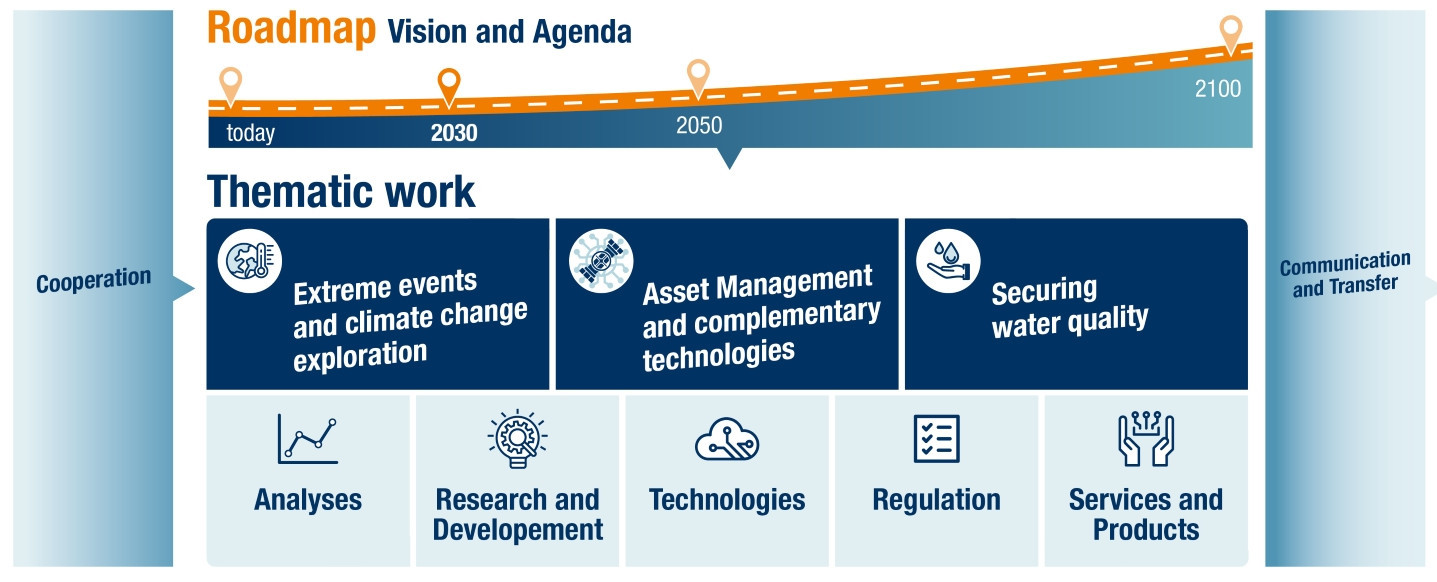
A strategy for future challenges
Dynamic changes due to climate, demographic and structural changes demand a complex adaptation process for the water supply in Germany. Considering that water management infrastructures often have a lifespan of decades (piping network) and well beyond (extraction areas, dams), a responsible future-oriented approach must span several decades. With the roadmap ‘Water Supply 2030’ the DVGW will develop a strategic agenda for action in order to outline the future societal, economical, technological and climate/environmental framework conditions and developments. It is intended to provide guidance on possible developments in the water management as well as solutions and recommendations to key actors and stakeholders.
In a first step, an ideal picture of the future (‘Vision 2100’) for water management development in Germany is outlined, which serves as a general goal. This is followed by the elaboration of alternative scenarios for the year 2050, forecasting more or less favourable developments (optimistic, realistic, worst case) on the way to the ideal situation. With the help of these ‘intermediate objectives’ it becomes clear to what extent pending decisions and choices of the present, influence future trends and developments. This results in important scopes for influencing and shaping ongoing or upcoming scientific research, cooperation and communication in the period up to the year 2030.
Focusing on central topics of water supply
The central element of the DVGW future oriented water programme is the specialised thematic work focusing on the three priority topics, ‘Extreme events and climate change adaptation’, ‘Asset management and complementary technologies’, and ‘Securing water quality’ addressed in parallel sub-projects with individual work programmes. Within the framework of the specialist thematic work, current challenges for water supply in Germany are to be examined for a time horizon up to 2030 and solution concepts are to be developed primarily at the methodological level.
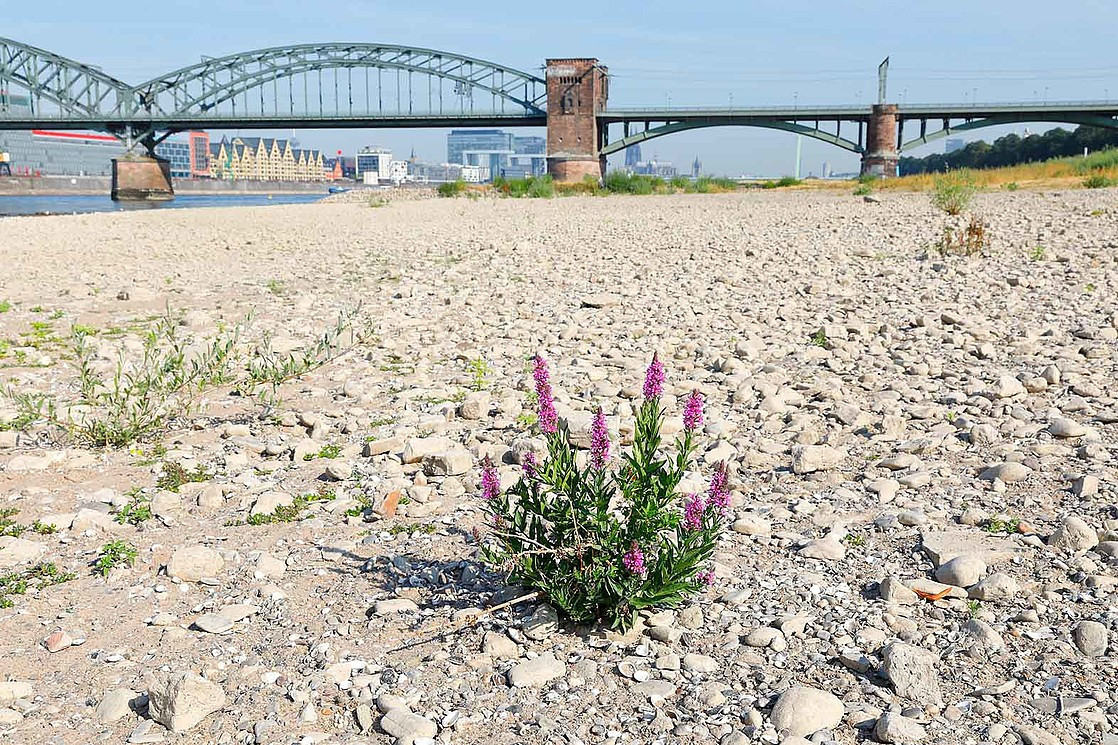
The influence of climate change on the intensity and frequency of the occurrence of extreme events is rapidly increasing. The impacts on the water supply are numerous and require the development and application of targeted climate change adaptation measures. The main objective is to secure water supply in the long term by providing relevant data and survey systems, the (continued) development of management concepts and tools, and the securing of sufficient water resources.
For this purpose, the following key results are necessary and planned to be obtained:
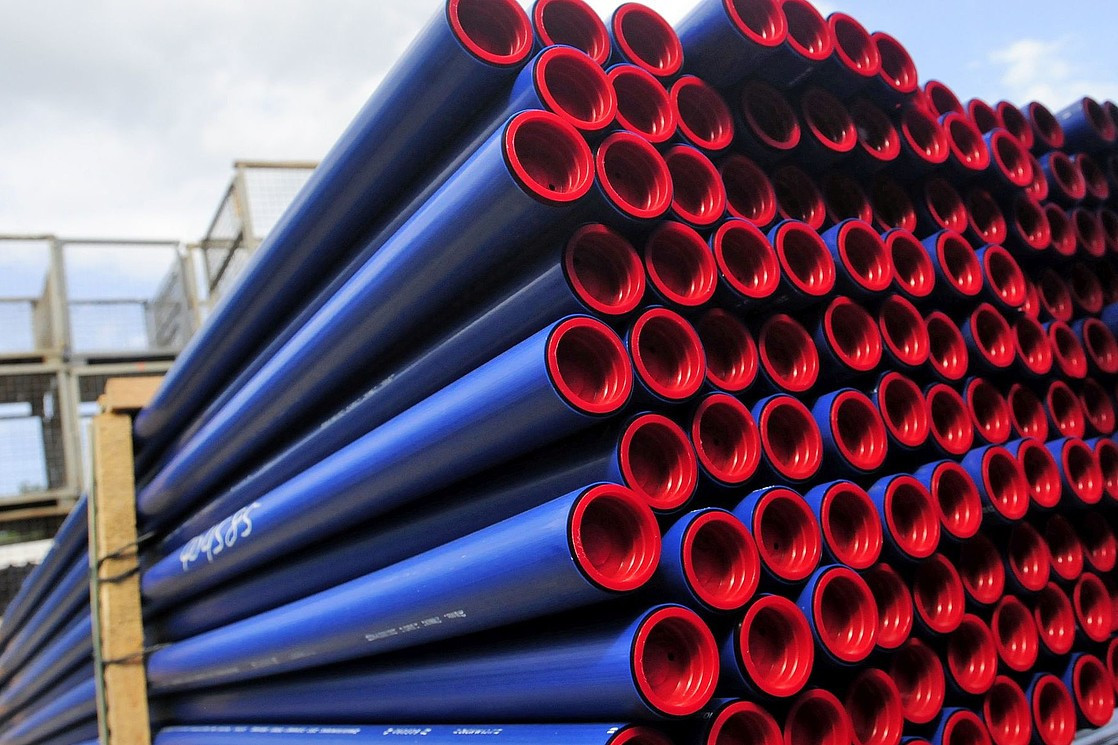
The maintenance of function and value and the adaptation of the drinking water infrastructure are a major challenge for the water supply sector for the coming years. For large and small water suppliers alike, an integrated asset management is the foundation to cope with the complex tasks. Therefore, asset management and complementary technologies (including digitalisation) play an important role due to the changing conditions and consumption scenarios and their influence on the future water infrastructure. Water supply needs tools for the substantial preservation of the value of the existing infrastructure. The adaptation of existing supply systems to changing supply and demand volumes as well as higher requirements for resilience of future-proof infrastructure require analyses, innovations and pilot testing of new technologies, diagnostic tools and data-driven system solutions.
Planned are the following key results:
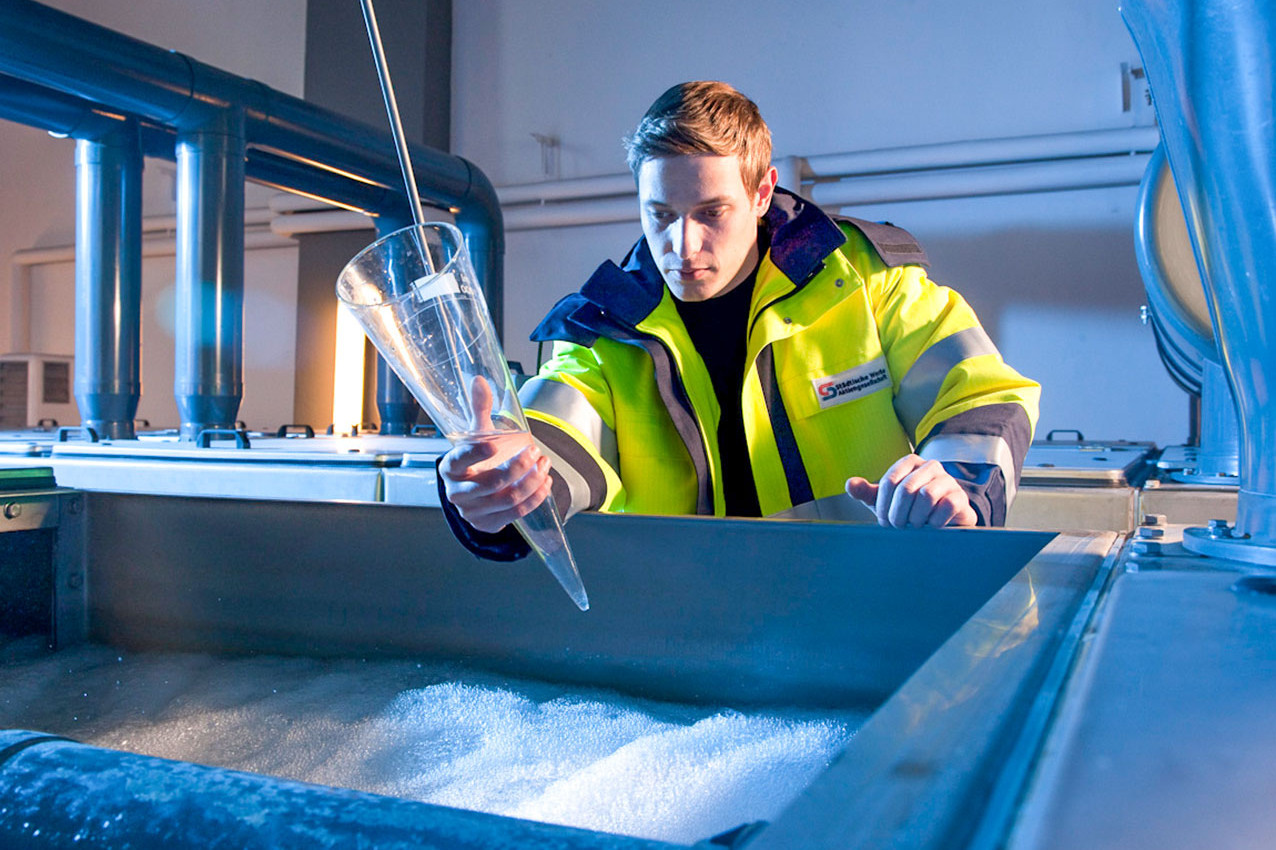
As a recognised body of rules and regulations for water supply in Germany, it is the original task of the DVGW to ensure that the use of water for human consumption poses no risk to health. This demand must also be maintained as the highest premise in times of climate change, which is becoming ever more apparent, with rapidly changing usage behaviour and increasing anthropogenic impacts on water resources. In addition, in the future, the discussion about pollution and limit values etc. will no longer be conducted in the µg/l range, but a few orders of magnitude lower. At the same time, new developments in treatment technology, trace analysis and digitalisation provide new possibilities and opportunities.
The focus of the work is on
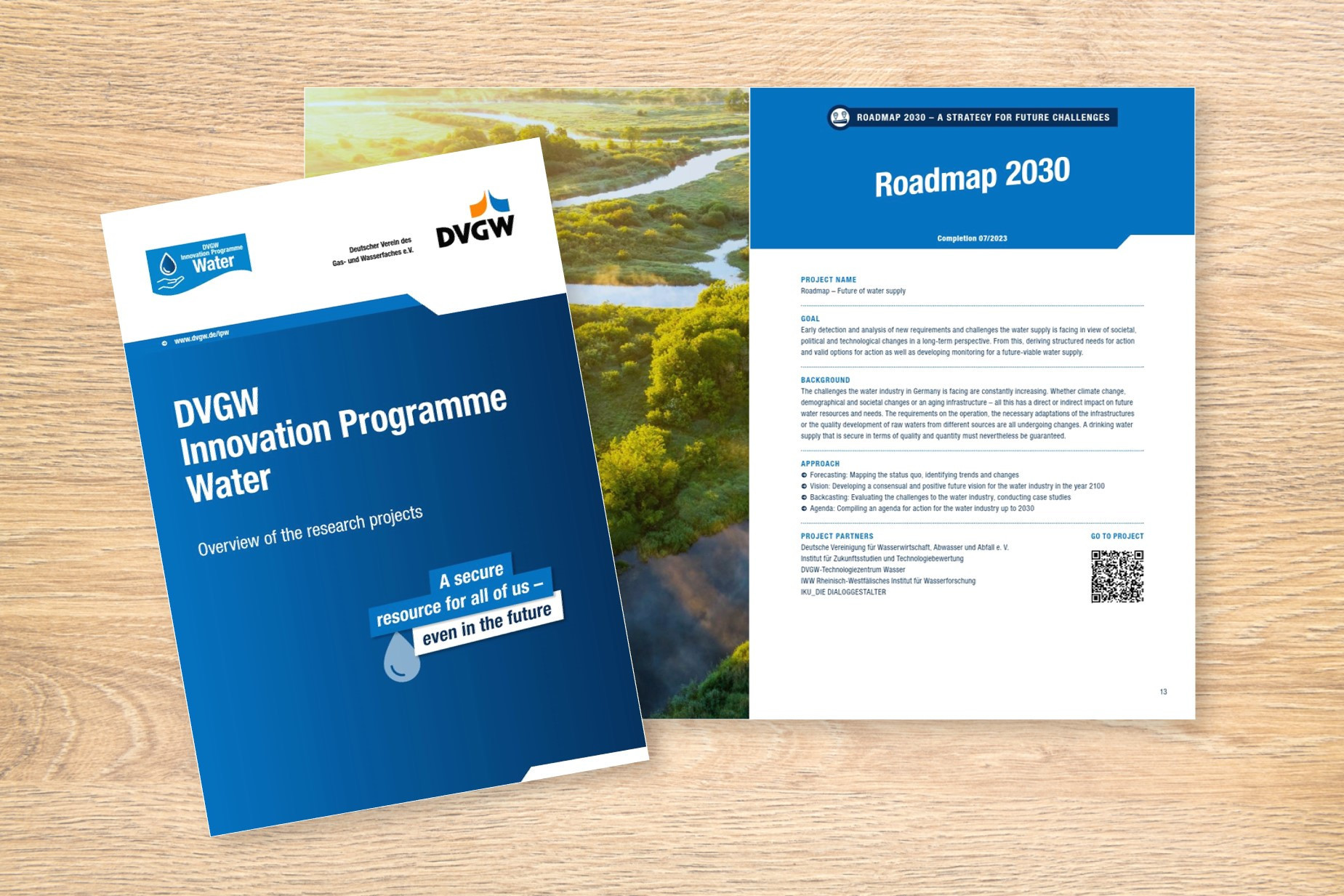
Overview of the research projects
The DVGW Innovation Programme Water was launched in 2021. Since then, numerous research projects have been initiated within the framework of the three fields of innovation. This brochure - with download link below - provides an overview of all research projects in the program - completed and ongoing as of March 2023.